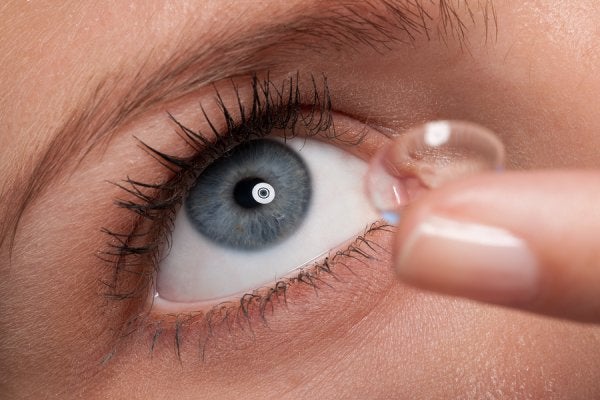
H ow to Care for Your Contact Lenses
Whether you’re new to wearing contact lenses or you’ve had them for years, one of the most important things to know is how to take care of them. Proper care for your contact lenses is essential to avoid eye infection and ensure they’re functioning at their best for your eyesight. Whether you have hard or soft lenses, many of the required care guidelines are the same.
Guidelines for cleaning your lenses:
- Wash your hands thoroughly with soap and water before handling contact lenses. Be sure to rinse and dry them with a lint-free towel.
- To clean your contact lenses, rub them with your fingers, then rinse the lenses with solution before soaking them in the case. Even if you’re using a “no-rub” solution, this method can get your lenses cleaner than otherwise.
- Follow the guidelines for lens cleaning and storage provided by your optometrist and the manufacturer of your contact solution. If you have questions about the guidelines, contact your optometrist’s office for clarification.
- Wear and replace your lenses as prescribed by your optometrist. Don’t try to extend the life of disposable lenses past the prescribed period.
What not to use on your lenses:
- Don’t use saliva to wet your lenses or put your lenses in your mouth to wet them — saliva isn’t a sterile solution and can contribute to infection.
- Don’t try to disinfect lenses with saline solution or rewetting drops, as neither is an effective or approved disinfectant.
- Remove your contact lenses before going in a hot tub or swimming. Minimizing their contact with bodies of water or pools keeps them cleaner and your eyes safer.
- Don’t rinse your contact lenses with water or store them in water. Only store them in contact solution.
Contact case and lens solution care:
- Don’t use water to rinse your contact lens case. Instead, rinse your case with fresh solution and leave it open to air dry.
- Keep your contact lens case clean and replace it regularly, as lens cases can be a source of contamination and infection. You should replace your contact lens case at least every three months.
- Don’t reuse old solution or transfer contact lens solution into smaller travel-size containers. These actions can contaminate the solution, potentially leading to an eye infection.
- Keep the solution bottle closed tightly when you’re not using it, and don’t allow the tip of the bottle to touch any surface.
These guidelines were developed by the American Academy of Ophthalmology, the Contact Lens Association for Ophthalmologists, the Cornea Society and the American Society of Cataract and Refractive Surgery. They aim to ensure you are taking proper care of your contact lenses to avoid eye infection.
Depending on the type of lens you have, the risk for infection may vary. Hard gas permeable contact lenses are the best type of lens if your aim is to reduce the risk of infection. They are a safer than any type of soft contact lens. Single-use daily disposable lenses are meanwhile the safest type of soft lens. Talk to your optometrist about which contact lens is right for you.

